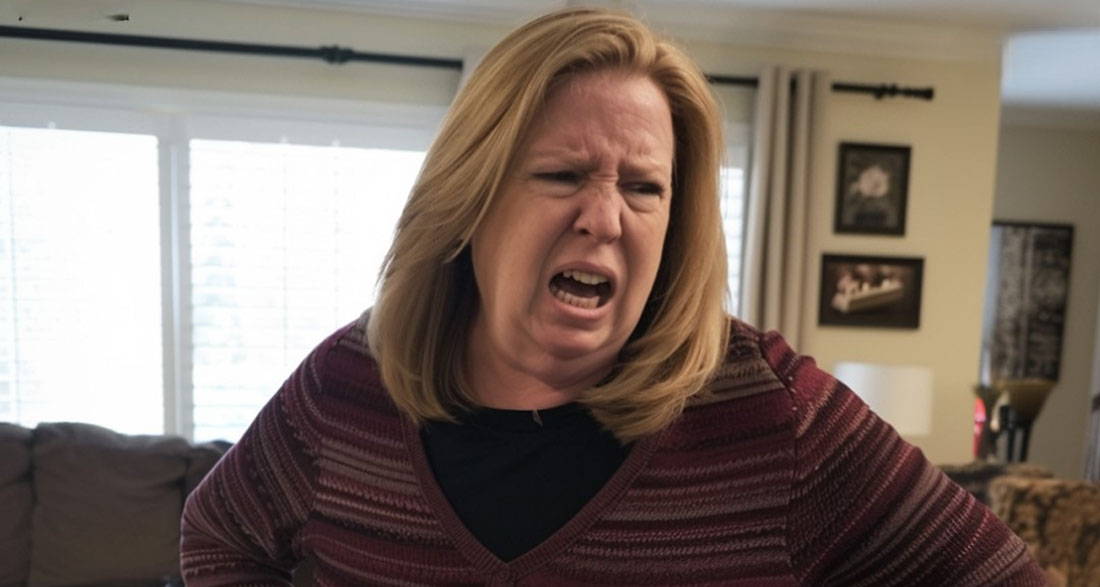After years of silence, my estranged mother suddenly showed up, uninvited and with a smile that didn’t reach her eyes. This was the woman who had kicked me out when I was 15, leaving my father to pick up the pieces of my broken life. Now, after his death, she was back to claim her piece of his legacy. And I wasn’t about to let her take what wasn’t hers.
When Dad passed away, it felt like the world had collapsed beneath me. I sat in his hospital room, holding his hand as the beeping of the machines went silent. The cancer had taken him quickly. From diagnosis to goodbye, we only had three months. But in those last days, despite all the pain, Dad still managed to make jokes. He’d squeeze my hand and laugh about the awful hospital food.
“Catherine,” he whispered the night before he passed, his voice weak but determined, “promise me you’ll keep living—not just surviving.”
I promised him. But as I left the hospital, another memory I’d rather forget hit me—my mother. The woman who had abandoned me when I needed her most.
At 15, I stood on the porch of her house, clutching nothing but a backpack. She had pushed me out with cold words. “The world won’t coddle you,” she said, her face stone-cold. “You need to grow up. This is for your own good.”
But it wasn’t for my good. I ended up in a shelter, alone and scared, until Dad found me. He never stopped looking for me, even though she’d lied about him not caring. He found me, brought me home, and helped me rebuild my life. From that day on, he became my rock.
He was there at my high school graduation, cheering the loudest. He supported me through college. We made new traditions to fill the empty spaces that she left behind—fishing trips, Christmas movie marathons. He was everything a parent should be. Everything she wasn’t.
Planning Dad’s funeral was hard. Everything was a blur of decisions and grief. Aunt Sarah helped me with the details when I couldn’t handle it. Dad’s will was simple. Everything was left to me, though I chose to share some with his siblings—people who had always been there for me in the truest sense of the word.
I thought I was finally healing, moving forward, until one day, my mother showed up on my doorstep. She looked older, but that familiar calculating look was still in her eyes.
“My baby!” she exclaimed, hugging me like nothing had ever happened. “Look at you—so successful!”
Her sweet tone didn’t fool me. Within minutes, she started laying the groundwork for her demands.
“Do you know how much it hurts to be abandoned by your own child?” she said, her voice full of fake sympathy.
My stomach turned, but I invited her in—out of politeness, something Dad had always taught me. We sat down and ate sandwiches, and that’s when she dropped the real reason for her visit.
“I heard your father passed,” she said, her voice suddenly serious. “I thought it was time to retrieve a few things that belong to me.”
And then, she hit me with it: “Why wasn’t I in the will? I’m his ex-wife! I deserve my share.”
I couldn’t believe my ears. Her sense of entitlement was mind-blowing. I offered her some of Dad’s leftover belongings, hoping to avoid conflict, but she scoffed.
“Scraps? That’s what I’m worth after all I endured with him? I gave him the best years of my life!” she yelled.
She went on and on, accusing Dad of not paying child support and bringing up every exaggerated complaint she had about their marriage. I didn’t say a word. I let her dig her own grave.
Then, she demanded, “How much did you get? You owe me for raising you!”
That was the breaking point. Years of therapy, and Dad’s unwavering support, had prepared me for this moment. I looked her straight in the eyes and said, “Fine. I’ll give you what you’re owed—if you can prove he didn’t pay child support, that you raised me alone, and that you didn’t kick me out at 15.”
Her face twisted in fury. “You don’t understand! I did the best I could!”
“The best you could?” I shot back. “While you spent Dad’s checks on yourself and left me with nothing? You didn’t raise me—he did.”
That was the end of it. She stormed out, shouting accusations of ingratitude. I stood my ground and closed the door on her once and for all.
That night, as I sat in Dad’s old armchair, the texts started. Each one angrier than the last. “You owe me! I deserve that money!” I silenced my phone, knowing she didn’t deserve a single response.
For the first time since Dad’s death, I let myself cry. I cried for him, for the girl I used to be, and for the freedom I now felt. Dad had rescued me once, and now I had rescued myself.
Some people say you can’t choose your family. But I know that’s not true. Family isn’t just about blood—it’s about choice. Dad chose me, and because of him, I found the strength to choose myself. And that was more than enough.
What do you think of the story? Share your thoughts in the comments below!

